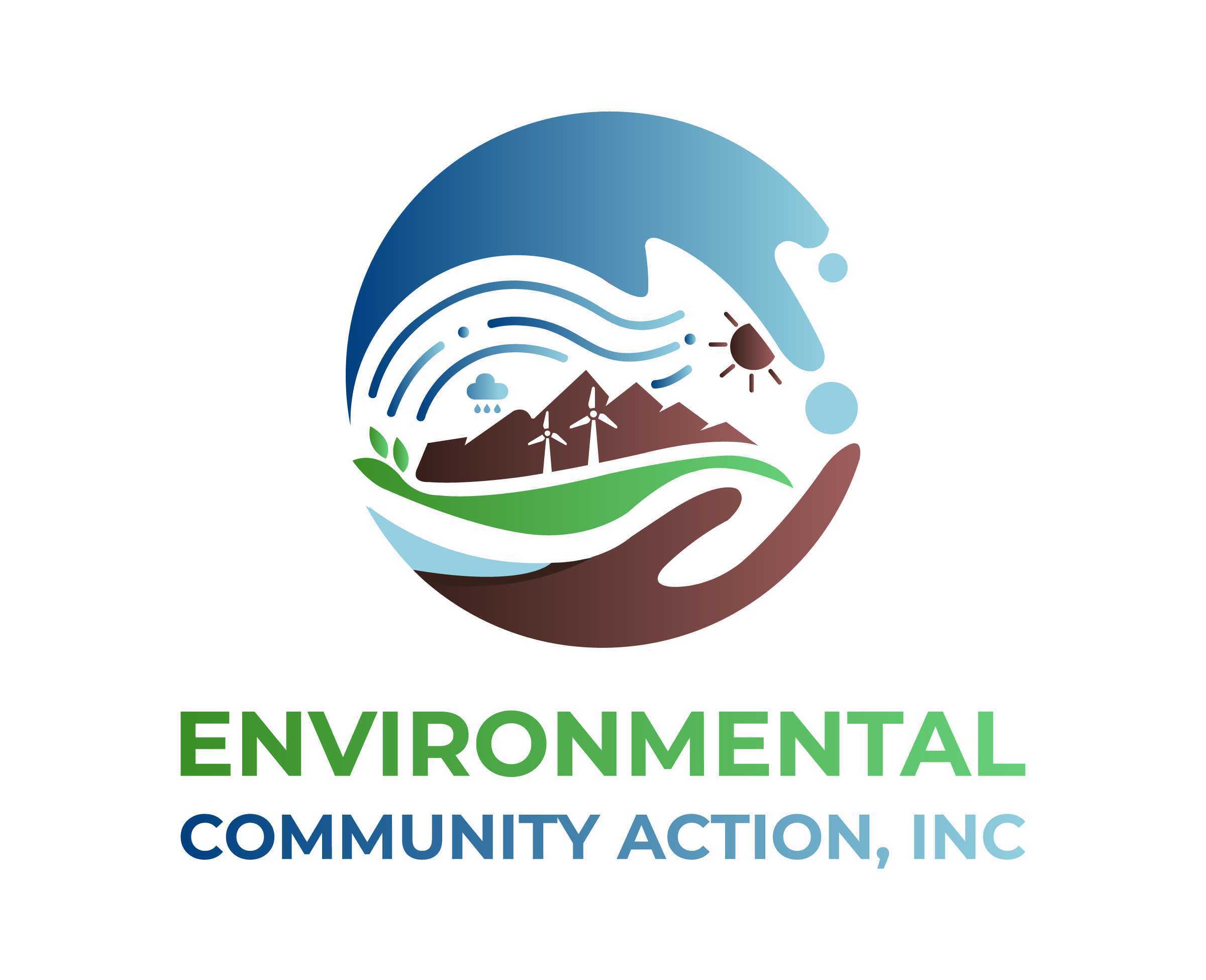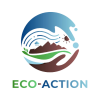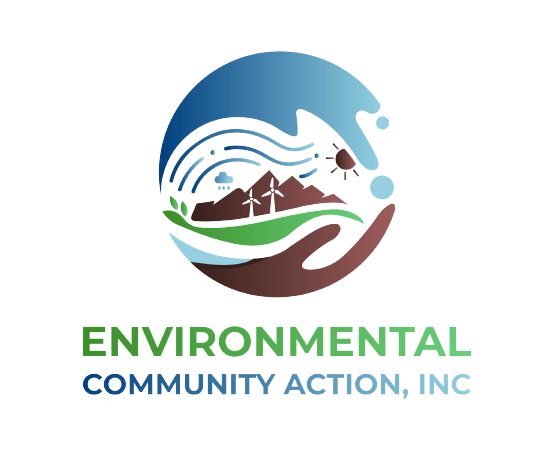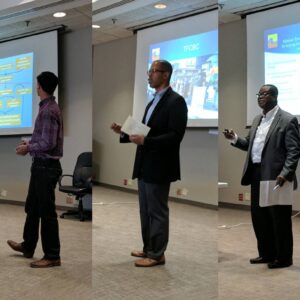
Jeremy Diner, Jason Dosier and Yomi Noibi making their joint presentation at the River Rally
Advocacy and organizing work hand in hand to make change in under-served communities. Organizing builds community power that focuses communities efforts toward their specific goals. Through advocacy, communities influence stakeholders so that those goals can be realized. Both of these are important capacities that are being strengthened though ECO-Action’s ongoing work with the River Network.
Environmental Community Action (ECO-Action) and the West Atlanta Watershed Alliance (WAWA) are part of a cohort of non profit organizations participating in the River Network’s Urban Flooding & Equity for Vulnerable Communities Collaborative. This Collaborative has been convened to enhance the ability of local watershed and community-based organizations to catalyze the type of change that is needed to address our urban water challenges, particularly those related to urban flooding and equity. The program is funded jointly by Groundwork USA and The Kresge Foundation. The River Network believes that citizen-led community and watershed organizations working in urban areas are uniquely positioned to influence their community’s relationship to water and work with water authorities, utilities and local decision-makers to address these issues.
In May, a twelve-person delegation which included Atlanta leaders from WAWA, ECO-Action American Rivers, the City of Atlanta Department of Watershed Management, the Conservation Fund and the Atlanta Watershed Learning Network attended the River’s Network’s River Rally held in Grand Rapids Michigan. At the event, Dr. Yomi, Jeremy Diner of American Rivers and Jason Dozier, a member of the Atlanta Watershed Leaning Network from the Peoplestown neighborhood, shared some recent Atlanta successes with other Rally participants working to address urban water challenges. Using the Turner Field Stadium development opportunities as a case study, their workshop, “Equitable Urban Planning For Resilient Communities,” sought to demonstrate the value of infusing concepts of equity and including community-based organizations in collaborations engaged in storm water planning. Participants found their session useful, informative, enjoyable, and motivating.
Dr. Na’Taki Osborne Jelks, Darryl Haddock; Juanita Wallace and Donna Stephens also made a presentation on the topic, “Leveraging Local Knowledge For Community Change.”
Other River Network training webinars topics have included Strengthening Advocacy in Community Organizing, The What, Why, and How of Relevancy, Equity, Inclusion, and Diversity and Grappling with Unconscious Bias for More Inclusive Water Protection & Restoration.
Collaborative training materials have been very valuable, helping ECO-Action to better make its case as it frames equity as a precursor to environmental justice. Additionally, the Network has a host of materials in the areas of equity, diversity, community engagement and advocacy some of which ECO-Action has shared with the participants in the Watershed Learning Network. The collaborative also offers ECO-Action opportunities to learn from and connect with other communities and community groups from across the country and for them to also learn and connect with ECO-Action. It is a learning exchange for all.
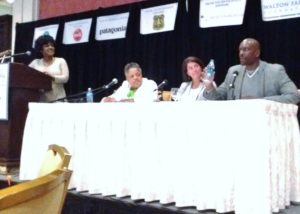
River Rally panel discussion
At the River Rally, one of the participants in ECO-Action’s Workshop remarked “Conceptual plans are good, but we have to create public/private partnerships in order to advance the work they describe.” Through work with the River Network, ECO-Action is strengthening its ability to engage with community members and stakeholders to build broad public and private support of green infrastructure and other stormwater management projects both in Atlanta and across the state of Georgia.
